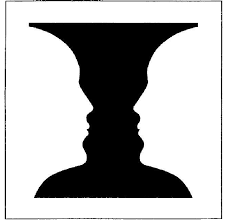An important point to remember with reports like that one is that how a person makes sense of what he experiences is shaped not only by the so-called details of the experience, but also by the (often implicit) explanatory frameworks in which this person is embedded.
Another word for this implicit explanatory framework is ‘Paradigm’.
It’s implicit; meaning that it runs through the structure of your worldview, but is often unspoken and so you may not even be very aware of it.
A person living in an animistic, magickal, or religious paradigm (or a post-animistic, post-magickal, or post-religious paradigm) will find it easy to apply the idea of ‘non-corporeal entities and forces’ to explain many of the things that are happening to him or her.
For significant swaths of history, people felt that the main reason a river flood occurred was that the spirits that animated the river were excited, agitated, or had some other reason to make it overflow. That was their world view and their paradigm.
Similarly, a person developed a fever or caught a cold because of spirits that governed fire or ‘humors’ in the body. And so on.
With today’s materialist (and post-materialist) paradigms, a flood is more likely to be explained in terms of precipitation patterns, soil porosity, and so on. Fevers and colds are described in terms of propagating micro-organisms, immune physiology, and stress-related processes in the body.
Both paradigms can work. And one does not ‘disprove’ the other. It just provides a viable alternative. One paradigm does not ‘disprove’ another; it’s more that it simply ‘changes the subject’.
A paradigm says:

“Rather than seeing this as white silhouettes of two faces, let’s look at it instead as a black silhouette of one vase.”
Neither disproves the other. It simply provides an alternative view that renders the previous one unnecessary.
Long story short: ‘Being attacked by demons’ can be described in many other terms that would sound less titillating or exciting. But however you choose to describe the experience, it’s still referring to out-of-control Recon.

